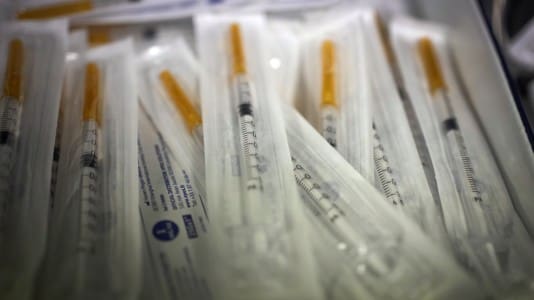Much of what Germany did to stop the spread of Covid-19 was not just useless but led to a mental and physical health crisis, according to Professor Reinhard Berner, who sits on the Federal Government Expert Council, which actively advises Chancellor Olaf Scholz.
The director of the Polyclinic for Pediatrics and Adolescent Medicine at the University of Dresden conducted a so-called meta-study comparing the restrictions in Germany with less-strict measures in other countries, according to German news outlet Die Welt.
Berner first compared Germany and Switzerland. While in Switzerland, the schools were only closed for eight weeks at the beginning of the pandemic, and daycare centers remained open almost continuously, Germany’s restrictions lasted nearly five times longer, totaling 38 weeks.
The question then becomes, was Germany five times better off than Switzerland?
The clear answer is not at all, according to the international data Berner examined.
[pp id=33650]
If one compares the incidences of Covid-19 in both countries in children and adolescents up to 19, they are almost the same. Instead, the long-lasting school closures predominantly had a negative effect. To this day, adolescents in Germany, in contrast to those in Switzerland, are struggling with immense secondary illnesses, including mental disorders that have led to a dramatic increase in suicide attempts, with restrictions and closures playing the major role in this troublesome development.
“If we assume that in the future we will be dealing with variants that are comparable to those of the past two and a half years, then there is no longer any justification for school closures,” Berner concludes.
Studies have earlier shown that every sixth child in Germany gained weight drastically during the lockdown. In addition to school closures, the general ban on sports is considered to have been a driver of obesity. This measure seems to have been counterproductive, argues Berner.
The doctor also examined the effectiveness of wearing masks in schools. He cites an investigation by the Finnish health authority that compared the incidences of children living in areas with and without mandatory masking in schools.
Here, too, there was no difference in terms of the frequency of infection over six months. Therefore, according to Berner, the restriction is not justified.
“As long as variants like Omicron appear in the future, politicians can save themselves from prescribing a mask in primary schools,” the government expert says.
Berner works at the Carl Gustav University hospital clinic, where he actively conducts research with a focus on the heath of children and teenagers.






